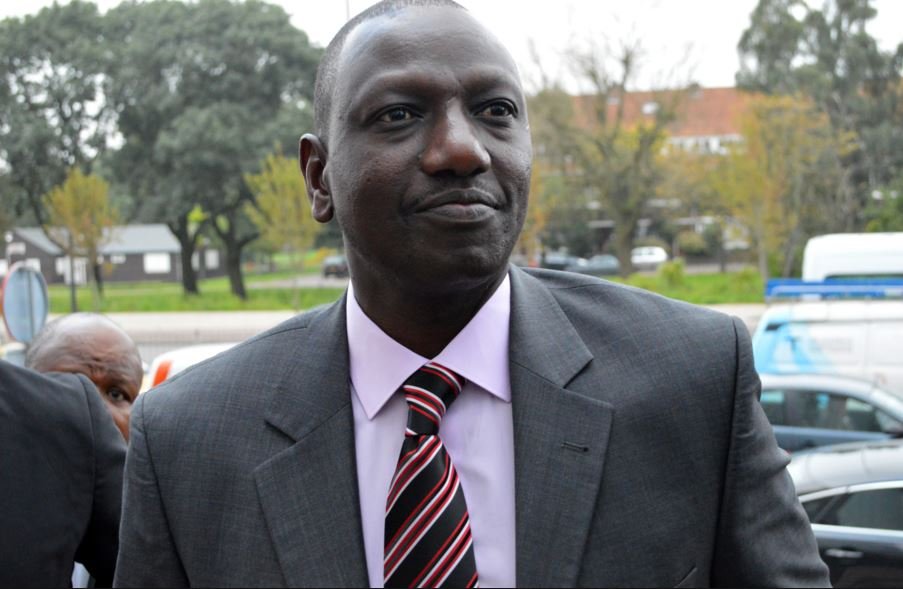Roman Polanski: Polish Supreme Court rejects extradition to US
Poland’s Supreme Court on Tuesday rejected a bid to extradite Oscar-winning director Roman Polanski to the United States, where he faces sentencing over a decades-old case of statutory rape.
The 83-year-old French-Polish national did not attend the hearing but got the news via text message from his lawyer Jerzy Stachowicz, who told reporters: “We’re very happy.”
“We hope one day it will be over in the United States,” Stachowicz added.
Justice Minister Zbigniew Ziobro had appealed to the court in May to overturn a 2015 ruling against extraditing Polanski, saying no one should be above the law.
The Supreme Court “is dismissing the appeal,” said Judge Michal Laskowski, definitively ending Poland’s part in the 1977 case.
Laskowski stressed that the Warsaw court’s role was not to rule on the merits of the case but rather to make sure due process had been followed by the lower court.
“We did not find a flagrant violation of the law,” he said alongside his two fellow judges.
He added however there were circumstances with no legal bearing that were hard to ignore completely: “More than 38 years have passed since the incident. The victim in this case publicly forgave Roman Polanski. He paid her the monetary damages she requested.”
The government appeal had appeared to be part of what the rightwing Law and Justice (PiS) government, which took office a year ago, touts as a moral revolution in strongly Catholic Poland.
Polanski is still wanted in the United States for sentencing over the 1977 statutory rape of Samantha Gailey after a photo shoot in Los Angeles.
He was arrested after Gailey, now Geimer, accused him of forcing her to have sex after drugging her.
She was 13 at the time. Polanski was 43.
He pleaded guilty to unlawful sex with a minor, or statutory rape, as part of a plea bargain under which he served 42 days in detention while undergoing psychiatric evaluation.
But in 1978, convinced that a judge was going to scrap the deal and hand him a hefty prison sentence, Polanski fled for France.
In 2009 he was arrested in Switzerland on a US extradition request and spent 10 months under house arrest before Bern rejected the US order.
The US then asked Poland to extradite Polanski in January 2015, but the local court in the city of Krakow rejected the demand the following October.
“Had Poland accepted the US extradition request, it would have violated the rights of Mr Polanski and at the same time the European Convention on Human Rights,” judge Dariusz Mazur said at the time.
The Krakow court was critical of the original US investigation into the filmmaker’s case, saying US judges and prosecutors had flouted “the rules of a fair trial”.
But after the PiS came to power in November 2015 and Ziobro became justice minister, he announced a review of the decision, saying he wanted to “avoid double standards”.
Ziobro said he respected the Supreme Court decision but added: “Sexual offences against minors should be pursued all the way, regardless of who committed them and when.”
Geimer published a book in 2013, saying she was made to drink champagne and given a sleeping pill before being raped by Polanski in the house of actor Jack Nicholson.
The mother-of-three said in her book she has forgiven him.
“My family never asked that Polanski be punished. We just wanted the legal machine to stop.”
Polanki’s French lawyer Herve Temime told AFP he was “delighted by this decision which puts an end to a grotesque case.”
Born in Paris in 1933 to Polish Jewish parents, Polanski moved to Poland with his family before World War II.
When he was eight, the Nazis arrested his parents and sent them to concentration camps. His mother never returned.
He went on to win acclaim for his 1962 feature debut in Poland, “Knife in the Water”, before arriving in Hollywood in 1968 to shoot his first big international hit, “Rosemary’s Baby”.
The following year his pregnant wife, actress Sharon Tate, and four friends were murdered by cult leader Charles Manson and his followers.
Polanski now lives in France with his third wife, French actress Emmanuelle Seigner, but he often visits Poland.
He has yet to return to the United States, however, not even in 2003 to pick up an Oscar for best director for his harrowing Holocaust drama, “The Pianist” — one of his eight Academy Awards.


